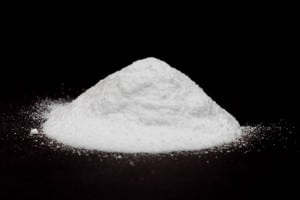J&J Claims No Proof of Talcum Powder Causing Ovarian Cancer in Personal Injury Case

J&J specifically targeted claims from plaintiff Barbara Mihalich, claiming that she had no evidence directly linking her injuries to talcum powder in the company’s bath products, as she had not developed ovarian cancer. They said that her claims for economic loss were too vague under the Illinois’s consumer fraud statute. She also failed to state that she bought the talcum powder bath products to use in her genital region, stating only that her complaint was linked to ovarian cancer. She did not show why the claims of ovarian cancer would diminish the value of the talcum powder bath products she allegedly purchased.
“Under these circumstances, plaintiff has suffered neither a cognizable injury nor any ‘actual damage’ under the Illinois Consumer Fraud and Deceptive Business Practices Act,” J&J said in its motion. “In fact, plaintiffs’ assertion that ‘all purchasers suffered an economic injury is implausible on its face.”
The first link between talcum powder and ovarian cancer was reported in a study in 1971.
Since that time, a number of studies have established a connection:
- A 1982, found a 92% increased risk of ovarian cancer in women who reported genital use of talcum powder products.
- A study from 1992, published in the Journal of Obstetrics and Gynecology found that weekly use of talcum powder led to a three-fold increase in ovarian cancer risk.
- A study published in a 1997 edition of American Journal of Epidemiology confirmed the link, and added that genital deodorant sprays with talcum powder could also be linked to ovarian cancer.
- In 2003, the journal Anticancer Research compiled data from 16 previous studies which involved data from 12,000 women and concluded that perineal baby powder use raised the risk of ovarian cancer later in life by 33%.
- In 2008, Harvard epidemiologist Dr. Margaret Gates reaffirmed the 2003 and 1992 studies, stating that her research led to the conclusion that weekly talcum powder use in the genital area raised the risk of developing ovarian cancer by 33%. She also specifically called out Johnson & Johnson’s product Shower to Shower, which she said could lead to a 41% increase in ovarian cancer risk with regular use. She published an addition study on the link between baby powder use and later ovarian cancer risk in 2010.
Not surprisingly, lawsuits have been filed alleging that Johnson and Johnson failed to warn women of the risks associated with talcum powder. Johnson and Johnson claims that it is not responsible. Judges and Juries have disagreed with Johnson and Johnson. In 2013, a verdict in favor of the plaintiff was issued in the first baby powder ovarian cancer lawsuit.
The talcum powder personal injury lawsuits have not yet been consolidated, but plaintiffs are urging the Judicial Panel for Multidistrict Litigation (JPML) to consolidate the lawsuits in the District Court of Illinois.
The Strom Law Firm Can Help with Talcum Powder Personal Injury Cases
If you have been harmed, or a loved one has regularly used talcum powder and has since developed ovarian cancer, the attorneys at the Strom Law Firm can help. You may be entitled to compensation through a talcum powder lawsuit. We offer free, confidential consultations to discuss the facts of your case, so contact us today. 803.252.4800.

